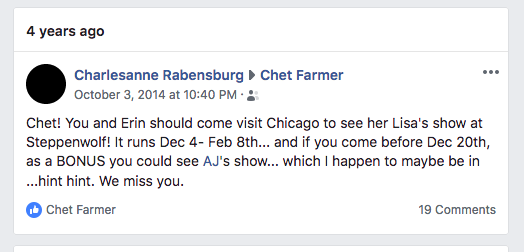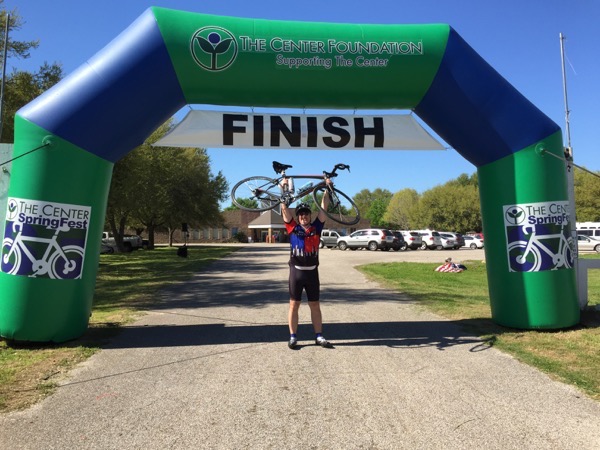Things were very different when I was a teenager. We had a senile, right-wing Republican president with bellicose thoughts, a precarious economy, and the Russians were scarier every day, so really a totally different environment than we have today.
Right.
Anyway, music was huge — transformational, definitional, personal, and incredibly important, at least to some folks. It’s tempting to assert that people today don’t feel that same connection, but I suspect that’s more about me being older and missing it myself. What’s definitely true, though, is that finding, listening to, exploring, and purchasing music were materially different processes in 1985.
First, all we really had for exploration was radio. Radio was a little better in the 80s — more local control, more idiosyncratic DJs — but that “better” was unevenly distributed. You had a shot at hearing new and interesting things if you lived in a big city, but for kids like me in the hinterlands you were lucky if you had two top-40 stations in a sea of country and “easy listening.”
The exception was folks lucky enough to be in range of a good university station. This is where the term “college radio” came from; those stations — typically weak enough that you’d lose them in a car wash — played ALL SORTS of weird and idiosyncratic stuff, and many’s the GenXer who discovered, say, the Velvet Underground, or Captain Beefheart, because some weirdo was spinning them at 3 in the morning on KTRU or WVUA.
But say you heard something you loved, and you wanted to buy it. Well, good luck! You might not even know what it was, and there was no Shazam to help you. Again, if you lived somewhere cool — large cities like New York or LA; interesting ones like Houston or New Orleans; a good college town like Tuscaloosa or Athens — you probably had a pretty damn good record store, of the type most folks today have only seen in movies. These places had clerks with nearly encyclopedic knowledge of at least a few genres, and could point you at new things you’d dig based on the records you bought.
But even then, this was the exception. In the bleak rural wastelands where many of us grew up, the only real vendor would be a chain store in a mall. In my hometown, it was Camelot Music. And as with any mall vendor, what kept them open was the hits — hits which, increasingly, mattered not at all to me and my friends. Until the late 80s, when so-called college/alternative bands basically took over, even finding something like REM’s “Murmur” or U2’s “War” could be a challenge in a place like this. Mail order was technically possible, but mostly focused on more niche material — lost of my punk pals ordered tapes from a zine called MAXIMUMROCKNROLL, for example. But there’s risk there; you had to more or less order blind, since obviously nobody was playing punk on the radio, and for the most part there was no exposure outside tape trading or live shows.
But what cousin Mickey asked about was the joy of it, not the suck of it. I had no real joy in this department until I went to college, in Tuscaloosa, Alabama, which then was home to a truly great record shop called the Vinyl Solution. Owner George Hadjidakis was a musical sensei for an endless stream of curious misfit freshmen; he must have sold thousands of copies of albums like “White Light/White Heat” and “Raw Power” over the years; I know that’s where MY copies came from (to say nothing of George’s evangelism for Big Star and Alex Chilton!). To enter a shop like this was to enter a temple; the acolytes might smile at you, or judge you, but once you were IN you’d be IN for good — you’d get tips about where the next cool band was playing or partying, and maybe even get on the guest list. They’d play new stuff for you, so you’d know about Janes Addiction before other people. Folks would hang out, smoke, and bullshit about music for hours — and inevitably leave with something they didn’t think they needed when they got up that morning.
The thing that’s hard to communicate today is the degree to which shops like this — with no cafe, no bar, no espresso machine, and usually nowhere to even fucking SIT — were destinations. To go to the record store was an escape, an activity intended to be open-ended. You’ve got somewhere to be in a could hours? Can it wait? Yeah, it can wait; George just got some copies of that VU bootleg you were asking about.
So you drift in, chat, and start sifting, flipping album after album or CD after CD – it was the 80s, after all – looking for the next treasure you didn’t know you wanted, the one that would open your next musical door. Writing this now, I have an intensely strong sense memory of the scent of used records and stale cigarette smoke, and how enveloped in sound you’d be thanks to the excellent speakers mounted on the walls.
Eventually, you’d leave with your purchases bundled up, maybe wondering a little how you’d eat for the rest of the week — we were, after all, college students — but more than anything excited to get home and play the records or CDs you’d just bought, which more than likely you’d already played once on the store’s system. At home, though, there’d be a cold beer, or maybe a joint, and you could play the wizened clerk to your friends who’d stayed at the dorm that day, and pass along your whatever new tips you’d gleaned from George.
We are, here in Houston, impossibly lucky, because we still HAVE at least a few great record shops. Maybe my favorite is Cactus Music, now over 30 years old. Music shopping is different now, but Quinn and his posse have kept a bit of the experience I loved at Vinyl Solution alive for a new generation. You really should treasure these shops; they’re rare and hard to sustain. Most were only precariously viable even in the “good years” of the 80s, and were ill-equipped to survive what Apple and Amazon brought to the marketplace. Among the dead is, it breaks my heart to tell you, is Vinyl Solution.
The thing is, though, that every time I play Big Star, or Pylon, or Iggy, part of me is back in George’s dusty shop with my buddy John, soaking up new music like a sponge, dizzy with musical euphoria. I only have $20; what can I get today, and what can I put off? Who’s playing later at the Chukker? Let’s get some Beast and drop the needle on that bootleg instead; I think Jolly’s got some weed.
That, my millennial pals, is something that’s hard to download. But Quinn will do his best to sell it to you at Cactus, and he won’t be far off. Tomorrow’s Saturday; there’s no better day for a trip to the record shop.





